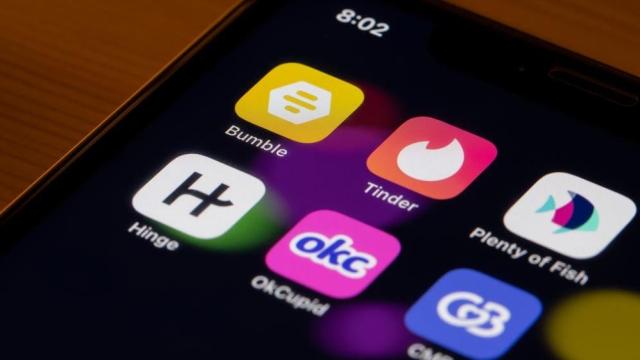The vetting process on dating apps may become more stringent as governments around the world look at perhaps implementing mandatory background and ID checks for those who use the apps. Strategies and considerations of how to better protect people searching for love online were discussed at roundtable talks in Sydney, Australia on Wednesday.
Ministers, victim-survivors, tech companies, and authorities met in what is quickly becoming the latest move in online security. Representatives for popular dating apps including Bumble and Tinder attended the chat, creating what federal communications minister, Michelle Rowland, said was an “important first step.”
She told The Guardian, “None of us underestimate the complex issues around privacy, user safety, data collection, and management that are involved,” adding, “There’s no one law that is going to fix this issue.”
“Many instances of abuse are perpetrated by those without a criminal record or any convictions … and that’s why a big focus of the discussion was also on what could be done to encourage respectful online interactions.”
Australia’s eSafety Commissioner, Julie Inman Grant, has warned dating app corporations that they need to make significant changes and improvements to protect users or face a mandatory code. She’s calling on dating apps to be more transparent with their data and what additional safety measures they will implement.
“If I don’t get total transparency, I have legal compulsion powers that I can use,” Inman Grant told The Guardian.
A spokesperson for Tinder’s parent company, Match, said in an emailed statement to Gizmodo that was glad to have been a part of the roundtable discussion, saying, “The safety of our members is critical, and we remain focused on building safety in everything we do.”
A study conducted by the Australian Institute of Criminology found in the last five years, three in four women have been the victim of some form of harassment on dating apps, with sexual harassment being recorded as the most common. Abusive and threatening language and unsolicited sexual images were also reported in the survey of 9,987 Australians using dating apps.
A Bumble spokesperson said in an emailed statement to Gizmodo that the company is grateful to have been included in the National Roundtable on Online Dating Safety and said they “ look forward to working with all parties involved to advocate for the elimination of gender-based violence and to strive to create a safer world for women.”
The spokesperson said Bumble has implemented security measures in recent years including a block and report tool that allows users to report any suspicious behaviour, photo verification, and Private Detector, which uses AI to detect and blur potentially crude images. The company has also released Private Detector on GitHub, allowing other apps to access the tool.
Tinder has improved its safety protocols as well to include similar features like photo verification, anti-harassment prompts, and a Trust and Safety team to mediate any reports of concerning behaviour on the app. The company has also created the Match Group Advisory Council in 2018 to advise Tinder on the prevention of sexual assault, sex trafficking, and harassment.
Wednesday’s meeting comes less than a month after a Texas woman was allegedly kidnapped by a man she met on a dating app after repeatedly refusing his sexual advances. The suspect, Zachary Mills, was taken into custody and is accused of assaulting the 21-year-old woman and denying her food and water for a week, Harris County Police reported.
“We know that domestic and sexual violence is not only an enormous problem in Australia, but across the world and that women, members of LGBQTIA+ communities, and First Nations are the most at risk,” the Bumble spokesperson said.
Hinge did not immediately respond to Gizmodo’s request for comment.
